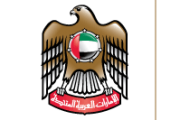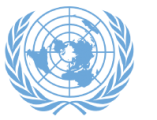I would like thank Minister Maas and Germany for convening this meeting, and Special Representative Pramila Patten and UNHCR Special Envoy Angelina Jolie for highlighting many important points today.
Mr. President,
This year marks the twentieth anniversary of the adoption of Resolution 1325, and the twenty-fifth anniversary of the adoption of the Beijing Declaration and Platform for Action. Despite some progress, sexual violence, including rape, continues to be widely used as a tactic of war in conflict situations, with devastating consequences both for individuals and their families, and for the broader sustainability of peace and economic recovery. COVID-19 has also exacerbated sexual and gender-based violence, which underlines the need for the international community to increase its efforts in combatting CRSV in its response to the pandemic. My country has supported the Secretary-General’s call for a global ceasefire in the face of the COVID-19 pandemic, which would reduce conflict-related sexual violence and enable delivery of services for victims.
Mr. President,
Our region is still recovering from the horrors of Da’esh and the aftermaths of the pain and suffering inflicted upon the people of Syria and Iraq. We must not forget the women and children who were forced into sexual slavery and tortured at the hands of terrorists and extremists.
It is unacceptable that to this day the perpetrators have not been brought to justice to answer for their crimes. As Member States, we have a responsibility to ensure that perpetrators of sexual violence are held accountable and are brought to justice.
Last year, the Council adopted Resolution 2467, which strengthens justice and accountability, and calls for a survivor-centered approach in the prevention and response to conflict-related sexual violence.
I would like to take this opportunity to share the UAE’s efforts towards this outcome.
The UAE has recognized the plight of Yazidi women, and has worked with Nadia’s initiative to ensure that the community of Sinjar recovers from conflict-related sexual violence. The Secretary General’s report confirms that more than 1,000 cases of conflict-related sexual violence were predominantly against Yazidi women and girls. Nadia’s initiative is a true advocate for survivors of genocide and sexual violence, and its programs are community-driven and survivor centric. The UAE has funded reconstruction efforts and donated over $2 million to provide comprehensive potable water, sanitation and hygiene projects for more than 60,000 Yazidis living in six villages in Sinjar. It is vital that survivors of sexual violence have a chance to start over in their homeland.
Last year, the UAE also co-hosted the ‘End Sexual and Gender-Based Violence’ conference with Norway, the UN, and other partners, including a $10 million pledge to fund a range of anti-SGBV entities. We similarly made one of the largest-ever humanitarian contributions to UNFPA in 2019, of $25 million, allowing the agency to continue its work on behalf of women in conflict-afflicted communities. The UAE has also earmarked its financial contribution to the United Nations Investigative Team to promote Accountability for crimes committed by Da’esh (UNITAD) to enhance the work of the team with respect to the investigation of sexual and gender-based crimes.
Earlier this year, the second cohort of the UAE-UN Women Joint Women Peace and Security Program successfully completed their military and peacekeeping training. The new cohort of graduates included 223 women from 11 countries in Asia, Africa, and the Middle East. The program has managed to build the capacity of women in our region and beyond. Meaningful participation of women in the security sector actively protects and prevents conflict-related sexual violence as well as creates an empowering environment for women around the world.
In New York, as part of our panel series with the Georgetown Institute for Women, Peace, and Security, we will be hosting a high-level panel examining women’s access to justice in -post-conflict reconstruction on July 23rd. The panel will include an in-depth discussion on improving implementation of gender-sensitive legislation as well as address cultural and structural barriers to women’s access to justice.
Mr. President,
The UAE furthermore takes note of the Secretary-General’s recommendations on conflict-related sexual violence, and would like to highlight the following priorities:
First, noting the rise in sexual and gender-based violence during the COVID-19 pandemic, we call on fellow Member States to continue to financially and politically support the UN Team of Experts on the Rule of Law and Sexual Violence in Conflict to enable it can continue with its critical work of ensuring accountability for sexual violence crimes.
Second, in order to strengthen prevention in the context of security sector reform, we must support affected countries financially and with technical expertise to enhance their response to conflict-related sexual violence. We must also increase the representation of women in national police services, considering in particular the positive correlation between the percentage of female officers and the reporting rates for sexual violence-related crimes.
Third, we need to ensure that all our efforts to document and investigate sexual violence are survivor-centered and well-coordinated, and that they adhere to the principles of safety, confidentiality, informed consent, independence, and impartiality.
In closing, I wish to reaffirm the UAE’s commitment towards addressing sexual violence in conflict situations. We must work together to enhance compliance measures and dismantle structural barriers in order to achieve more for survivors, and those at risk of SGBV, especially during these challenging times of the COVID-19 pandemic.
Thank you, Mr. President.


